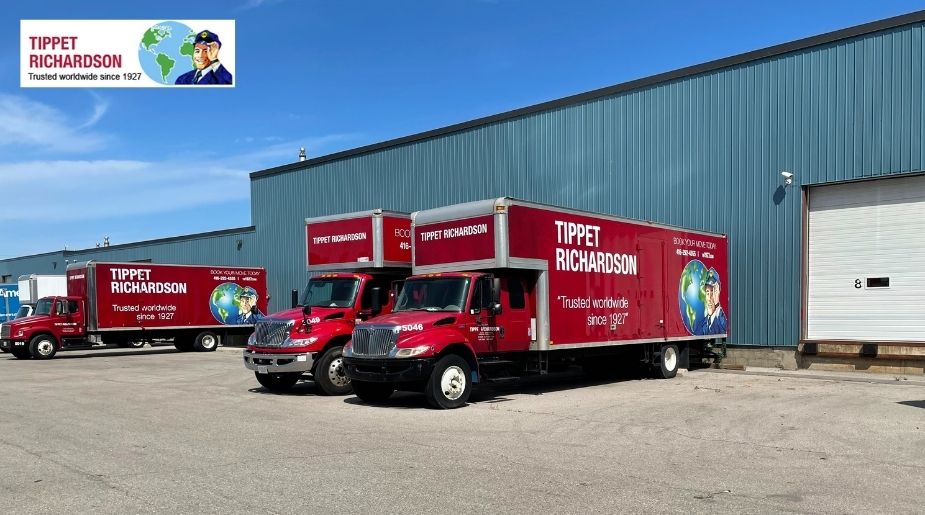In an era where data has become the lifeblood of organizations, effectively safeguarding and managing records is no longer just an option—it’s a critical necessity. In Toronto and throughout Canada, businesses face increasing pressures from regulatory bodies, industry standards, and stakeholders to maintain impeccable records management practices. Off site records management emerges as a robust solution: a strategic approach that transfers the responsibility of physical document storage to professional facilities designed for security, compliance, and efficiency.
By outsourcing records storage to specialized providers, companies can redirect valuable office space toward core operations, mitigate risks related to natural disasters and unauthorized access, and ensure rapid retrieval when information is needed. Whether you operate in finance, healthcare, legal, or manufacturing, understanding the nuances of off site records management can empower your organization to maintain business continuity, protect sensitive data, and achieve operational excellence. This article delves into every facet of off site records management—from foundational definitions to advanced integration with digital transformation—equipping Toronto-based businesses with the insights needed to implement a future-ready records strategy.
What is Off Site Records Management?
Off site records management refers to the practice of storing physical business documents—legal contracts, financial statements, employee records, client files, and more—at a secure, third-party facility. Unlike in-house archiving, which relies on internal storage rooms or on-site file cabinets, off-site facilities offer purpose-built environments that prioritize document protection and accessibility.
- Environment Control: Off-site facilities maintain consistent temperature and humidity levels to prevent paper deterioration.
- Professional Handling: Trained personnel follow standardized indexing and retrieval protocols, reducing human error.
- Advanced Security: Multi-layered security measures—such as CCTV surveillance, biometric access controls, and alarm systems—deter theft and tampering.
- Digital Inventory Tracking: Each box or file is assigned a barcode or RFID tag, allowing real-time inventory updates and precise location tracking.
By leveraging off site records management services, businesses can streamline internal workflows, reduce the administrative burden of file maintenance, and free employees to focus on higher-value tasks.
Why Businesses in Toronto and Canada Need Off Site Records Management
1. Compliance with Canadian Data Privacy Laws
Canada’s federal and provincial statutes—including PIPEDA (Personal Information Protection and Electronic Documents Act) and various privacy regulations—impose stringent requirements on how businesses collect, store, and dispose of personal information. Non-compliance can result in substantial fines and reputational damage. Off-site providers specialize in adhering to these legal frameworks, ensuring that your document retention and destruction policies meet or exceed mandatory standards.
2. Risk Mitigation: Fire, Theft, and Environmental Damage
On-site records are vulnerable to localized risks: office fires, floods, mold outbreaks, and unauthorized access. Off-site facilities mitigate these threats through:
- Fire Suppression Systems: Pre-action sprinklers, firewalls, and smoke detection.
- Climate Controls: Regular monitoring of temperature and humidity to inhibit mold and paper degradation.
- Access Protocols: Secure perimeter fencing, mantraps, and limited entry points to prevent unauthorized personnel from obtaining sensitive documents.
3. Real Estate Cost Savings
Toronto’s commercial real estate market commands premium rates. Repurposing space previously allocated to file storage into revenue-generating activities—such as meeting rooms, collaborative work zones, or client areas—can result in significant cost savings. Outsourcing your records to an off-site facility transforms fixed storage costs into a predictable, scalable expense tied directly to usage.
Key Features of a Professional Records Management Service
- Climate-Controlled Storage Facilities: Maintain environment-specific standards (typically 65–70°F and 45–55% relative humidity) to prolong document lifespan.
- 24/7 Security Monitoring: Continuous video surveillance, motion detection, and security patrols.
- Barcode Tracking and Digital Inventory Management: Each document box receives a unique identifier, enabling instantaneous location and status checks via an online portal.
- Audit-Ready Retrieval Systems: Structured workflows for requesting, retrieving, and returning files, complete with timestamped logs for compliance auditing.
Benefits of Partnering with a Trusted Records Management Provider
- Operational Efficiency: Employees can request specific files through a web portal—eliminating time wasted locating physical documents.
- Scalable Storage Solutions: Adjust storage capacity up or down in response to business growth or seasonal fluctuations without capital investment.
- Enhanced Security and Compliance: Benefit from ISO-certified practices and adherence to industry standards tailored to your sector (e.g., HIPAA for healthcare).
- Disaster Recovery and Business Continuity: Redundant storage locations and data backup plans ensure critical records remain accessible even if one facility is compromised.
Comparing Off-Site Records Storage vs. On-Site Document Storage
| Feature | Off-Site Storage | On-Site Storage |
|---|---|---|
| Security | Biometric, CCTV, guards, fire suppression | Limited; office locks and alarms |
| Environmental Control | Professional HVAC and humidity regulation | Dependent on building infrastructure |
| Scalability | Easily adjustable space-to-need | Fixed capacity; requires physical expansion |
| Accessibility | 24/7 digital portal with scheduled retrievals | Immediate but manual, time-consuming searches |
| Cost Structure | Pay-as-you-go, operational expense | Capital expense, maintenance, real estate cost |
How to Choose the Right Records Management Provider in Toronto
When evaluating potential partners, consider these criteria:
- Industry Experience and Certifications: Look for providers with at least 10 years of experience and ISO 9001/27001 certifications.
- Technology Infrastructure: Secure online portals, mobile access, and integration capabilities with your enterprise content management systems.
- Service-Level Agreements (SLAs): Clearly defined retrieval times, access policies, and penalty clauses for missed targets.
- Client References and Case Studies: Verify performance through testimonials and documented success stories within your industry.
Red Flags to Avoid: Providers without transparent pricing, undocumented security procedures, or no clear disaster recovery plans.
Integrating Off Site Records Management with Digital Transformation
As organizations accelerate their digital journeys, marrying physical records management with electronic document management systems (EDMS) is paramount. Leading providers offer services such as:
- On-Demand Document Scanning: Convert boxes of records into searchable PDFs.
- Cloud-Based Access Portals: Hybrid solutions that allow secure remote access to both physical and digitized documents.
- Workflow Automation: Track document lifecycle events—check in/check out, version control, and disposition scheduling—directly within your existing enterprise software.
These integrated approaches not only enhance accessibility but also support compliance audits and analytics-driven decision-making.
What is the cost structure for off-site records management services?
Pricing is typically based on:
- Number of boxes or cubic feet stored per month
- Frequency of retrieval and delivery services
- Additional services (scanning, destruction, special packaging)
Transparent providers offer detailed quotes and usage reporting—transforming storage into an operational expense.
Can I visit the facility where my records are stored?
Yes. Most providers allow client visits by appointment. You can inspect storage conditions, review security measures, and verify compliance practices firsthand.
Also Read: Secure Record Management: A Guide for Toronto Businesses
Conclusion
Implementing a robust off site records management strategy is a game-changer for Toronto businesses. By partnering with a certified, experienced provider, you unlock enhanced security, regulatory compliance, operational efficiency, and scalability—all while reclaiming valuable office space.
Don’t let critical documents become a liability. Contact us today to schedule a free consultation and learn how our off-site records management solutions can protect and streamline your business operations in Toronto and beyond.





